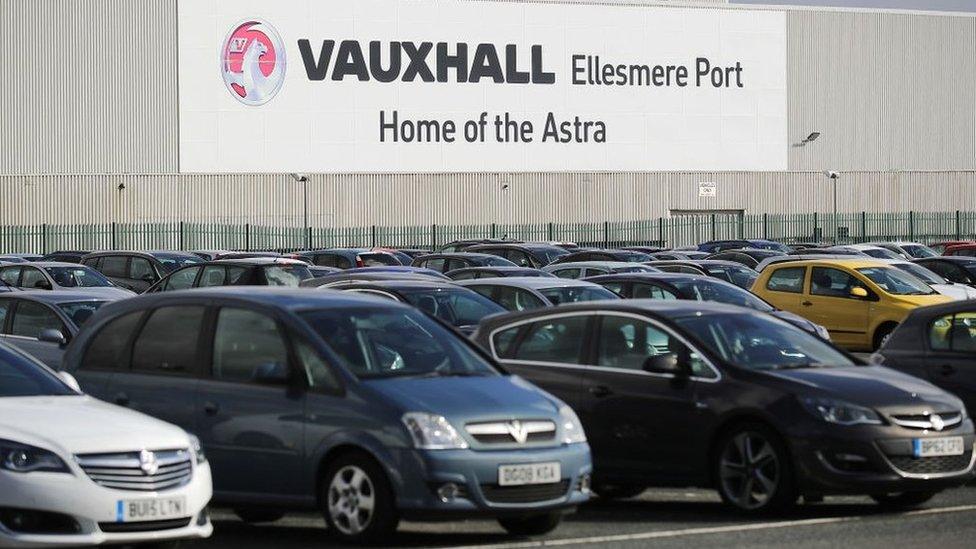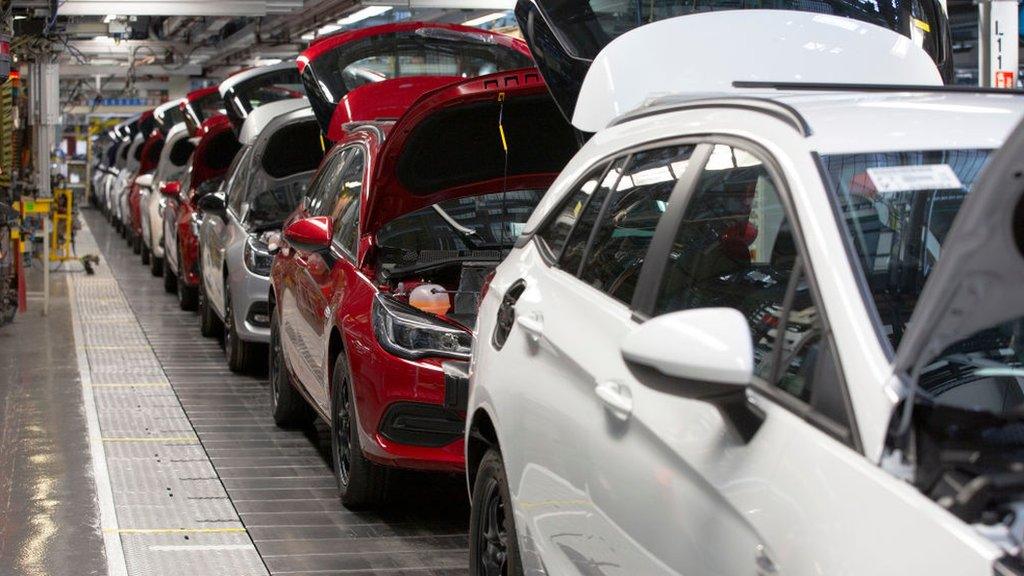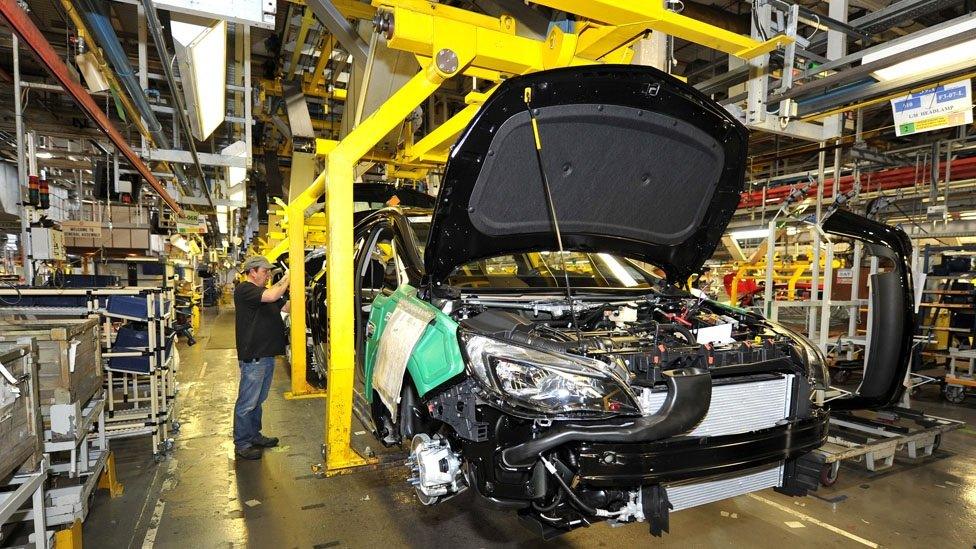Vauxhall: Talks over fate of Ellesmere Port plant 'productive'
- Published

Talks over the future of Vauxhall's Ellesmere Port car plant have been "productive but not conclusive", the car plant's owner said.
Stellantis has been in talks with the government for weeks about the site, which employs more than 1,000 people.
It is thought Stellantis is seeking financial incentives to make a fully electric car at the factory.
There are fears Stellantis, formed from the merger of France's PSA Group and Fiat-Chrysler, may close the factory.
Stellantis bosses have also voiced concern about the UK's decision to bring forward a ban on new petrol and diesel cars.
Michael Lohscheller, who heads the parent group's Vauxhall unit, said it expects an "eventual binding commitment by the UK government in the near future and will act accordingly.
"In the meanwhile, no investment decision will be made," he said.
Speculation over the future of the plant, which makes the Astra car, has been mounting since the merger of PSA and Fiat-Chrysler created a new automotive superpower.
Stellantis has been reviewing its options for plants worldwide. It has yet to decide if a new generation of a hatchback model will be produced there.
Vauxhall confirmed on Thursday that talks on "different scenarios for Ellesmere Port" were ongoing with UK authorities "at both national and local levels".
Business Secretary Kwasi Kwarteng has been involved in discussions with Stellantis, which have been ongoing for several weeks.
The BBC understands that three options on the table for the plant include:
Continued production of internal combustion engine-powered cars - with the possible addition of the new hatchback model - for the short-term until the ban on sales of new petrol and diesel vehicles in 2030.
Making plans to wind down production at Ellesmere Port completely.
Securing the plant's long-term future by committing to making a new generation of electric cars in the North West.
Stellantis boss Carlos Tavares recently referred to the "brutal" decision for the UK government to bring forward the ban on the sale of new petrol and diesel cars to 2030 and said it might make more sense to move future electric production closer to its biggest market in the European Union (EU).
Shadow business secretary Ed Miliband said: "The Ellesmere Port plant is a major employer and winding it down would have devastating consequences, with 1,000 highly skilled jobs lost from the local community.
"To support our automotive manufacturing industry and boost its competitiveness, Labour has called for ambitious investment in electric vehicle technology, including the electric battery supply chain, through a £30bn green economic recovery. This investment would mean manufacturers have the long-term confidence they need to build new electric models in the UK."
A government spokesperson said: "We are committed to ensuring the UK continues to be one of the best locations in the world for automotive manufacturing, and we're doing all we can to protect and create jobs, while securing a competitive future for the sector."
- Published25 February 2021

- Published31 October 2019
